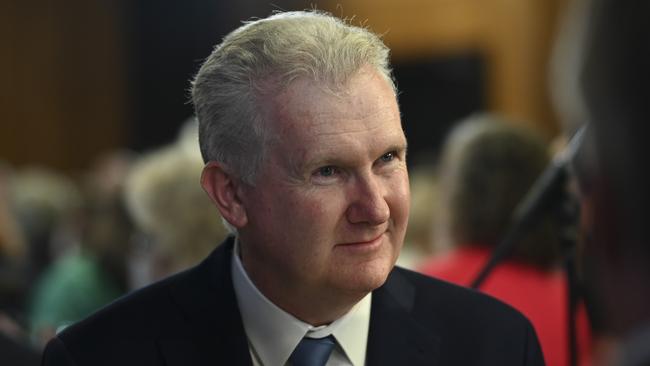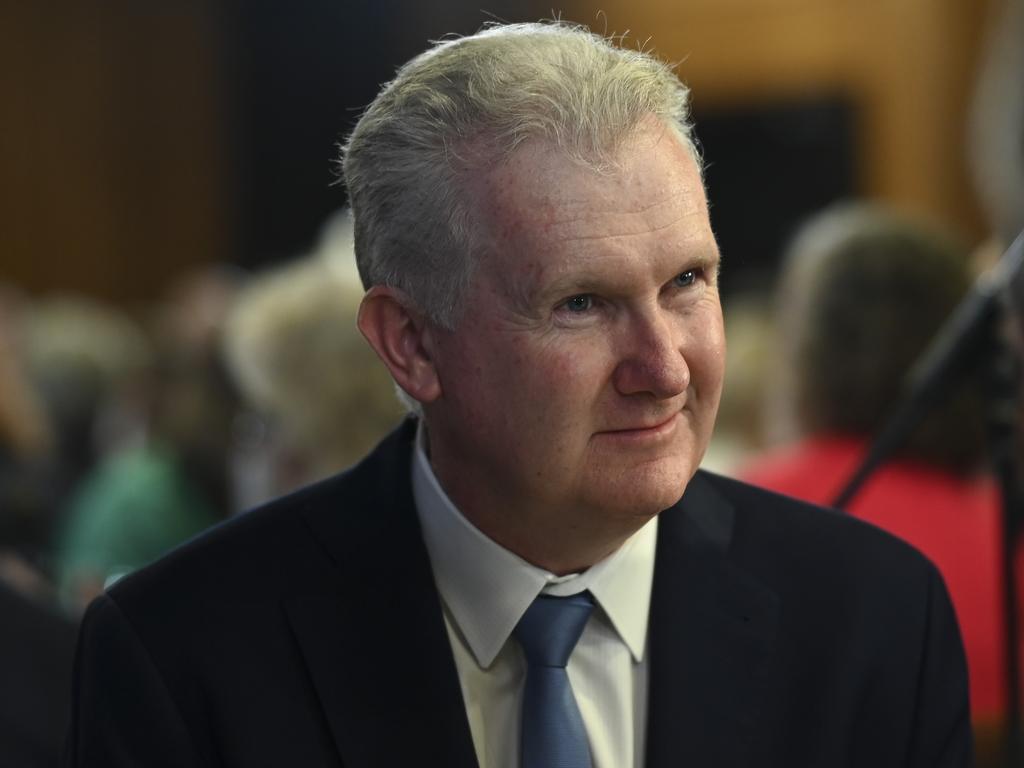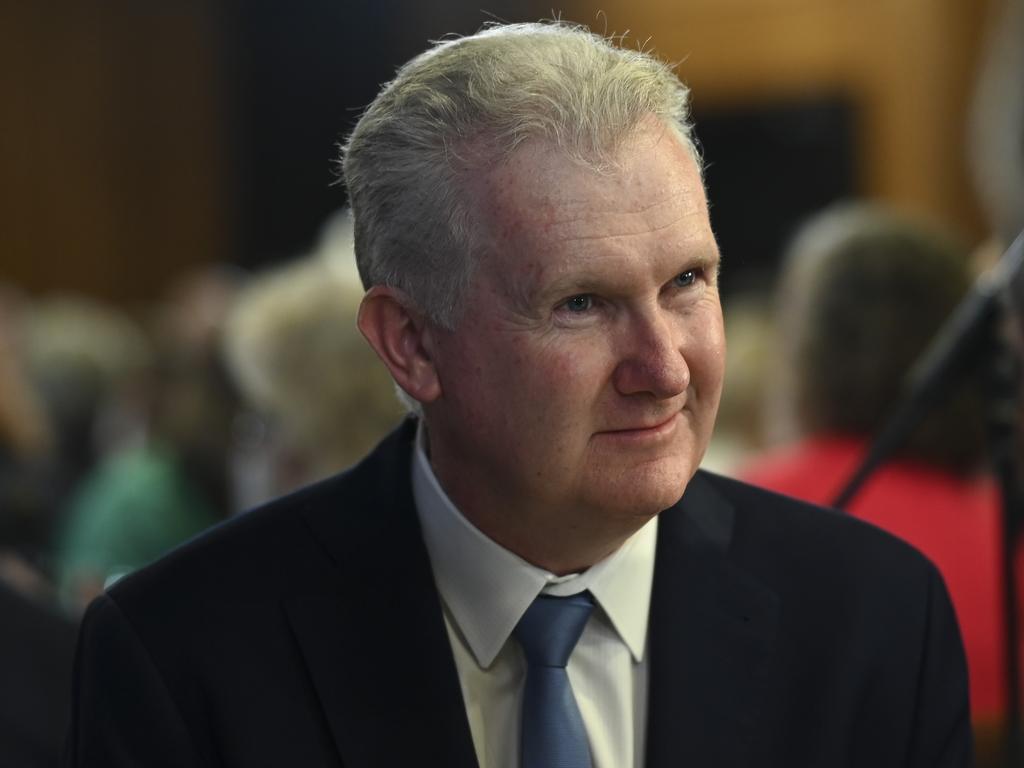Business unites in late bid to amend industrial relations reforms
Employer groups opposed to Labor’s industrial relations shake-up have united in an eleventh-hour bid to force changes to the government’s legislation in a meeting with Tony Burke.

Employer groups opposed to Labor’s industrial relations shake-up have united in an eleventh-hour bid to force changes to the government’s legislation in a meeting with Workplace Relations Minister Tony Burke before the return of parliament next week.
Business leaders met Mr Burke on Friday to raise a shopping list of concerns over proposed changes to casuals, gig economy workers, independent contractors and a new legal right allowing workers to disconnect from their bosses outside office hours.
Mr Burke listened to their concerns but made no commitments, with Labor also facing an obstacle in the upper house after crossbench senators Jacqui Lambie and David Pocock pushed for amendments to change or delay the government’s workplace reforms.
Nationals leader David Littleproud also warned on Friday that proposed IR changes allowing unions to access worksites without the usual requirement to provide 24 hours notice could see delegates entering “farms unannounced”. He said the farm was “often the family home for many Australians”.
The Weekend Australian understands the Friday meeting was aimed at identifying potential changes where the government was open to compromise. Business Council of Australia chief executive Bran Black argued for a delayed introduction date for the disconnection right, plus a Senate inquiry to examine its implications across the workforce.
Business leaders accused the government of not consulting properly over the introduction of a “right to disconnect” within the Fair Work Act, a demand made by the Greens and endorsed by Labor MPs in a Senate inquiry report tabled on Thursday.
Labor senators also used the report to endorse the incorporation of “disconnect term” in modern awards and enterprise agreements along with new powers for the Fair Work Commission to make “right to disconnect” stop orders against employers.
Australian Industry Group chief executive Innes Willox said that giving workers the legal right to disconnect from their bosses outside office hours in a “last- minute proposal” that had not been subjected to proper scrutiny “would be a recipe for disaster.”
He suggested the change was not necessary, given there were already limits in the Fair Work Act on the hours an employee could be required to work.
“It is crucial that any proposal being considered by the federal government is made public as quickly as possible so that industry can genuinely consider what impact it will have and it can be robustly considered by the parliament,” he said.
“An obvious risk is that an ill-thought out or heavy-handed approach will hurt both employers and employees. There is an obvious risk that it could perversely discourage employers from offering additional paid work to employees who might want it. That will just hurt employee incomes.”
Jessica Tinsley, the director of workplace relations at the Australian Chamber of Commerce and Industry, also said there had been “no consultation on this proposal with business to date”.
“No piece of legislation is properly going to be able to account for every single situation,” she told ABC radio.
“With so much additional regulatory burden on employers at the moment … for businesses to get their heads around one more change I think is problematic at this time.”
Australian Chamber of Commerce and Industry chief executive Andrew McKellar said it was important for business to try and secure changes to the legislation even though there was strong opposition to Labor’s workplace shake-up.
“Ultimately, business is never going to support this legislation. But we have to do everything we can to try and mitigate its worst impacts,” he said.
Greens industrial relations spokeswoman Barbara Pocock said there were “no real limits” on how frequently workers were being contacted by their employers which meant “family life was intruded upon”.
“We need a flexible reasonable approach here that looks at and deals with the diversity of circumstances,” Senator Pocock told ABC radio.
“ What will work in a hospital around this right would be very different around what might work in retail for example.”
Senator Lambie sounded the alarm during the week on Labor’s proposed changes to casuals, workplace delegates’ rights and the definition of employment that Master Builders argues is a threat to independent contracting in the building and construction sector.







To join the conversation, please log in. Don't have an account? Register
Join the conversation, you are commenting as Logout